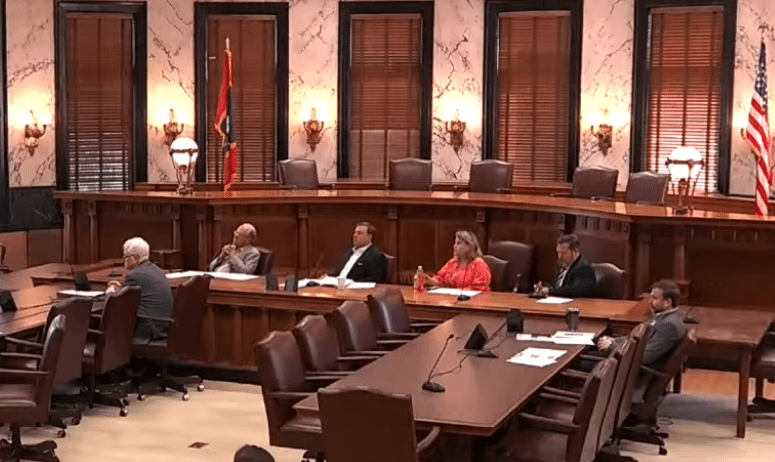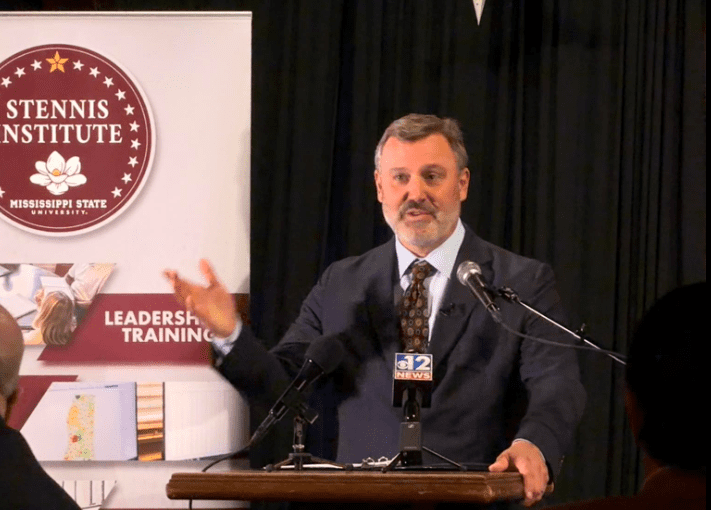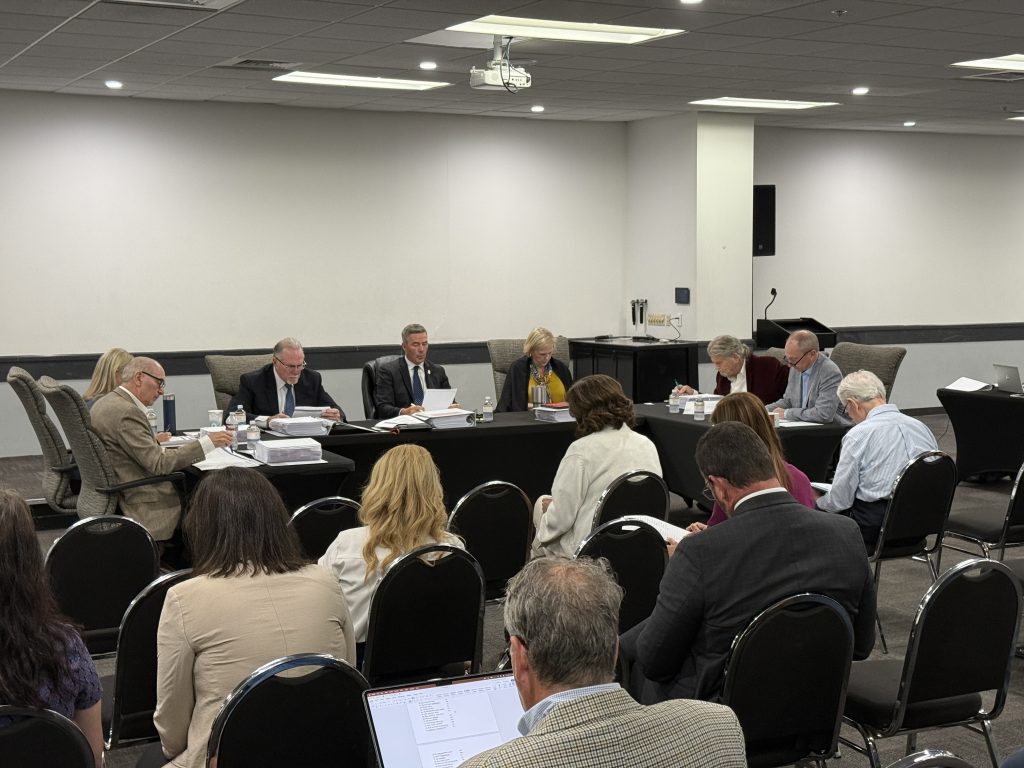
Senate Insurance Study Committee (From livestream)
- Information gathered during the committee’s meetings this fall will be used to draft possible legislation to be considered in the 2026 legislative session.
A state Senate study committee created to explore possible solutions to Mississippi’s health insurance struggles heard suggestions on how to give doctors more say in patient treatment and how to fund low-income, rural clinics last week.
The Insurance Study Committee was established in March 2025, following the passage of SB 2401, to enhance oversight of health care financing and delivery services for enrollees and to address a critical gap in the state’s health insurance landscape.
The committee will present its findings on December 1 for consideration of possible legislation during the 2026 session.
On Thursday, the study group learned that a few insurance companies have a monopoly on providing coverage to Mississippians. This limited pool forces medical professionals to accept whatever reimbursement rates and regulations the insurance companies dictate, according to Mark Garriga, testifying for the Mississippi Independent Physician Practice Association, MIPPA.
Garriga presented a slide presentation showing that in Mississippi, one company has an 85 percent market share for large groups. In the self-insured category, one company has a 96 percent market share. In the small group, a single company has a 94 percent market share. That company in each category is Blue Cross Blue Shield of Mississippi.
Garriga asked the Senate committee if this would be acceptable in auto sales or real estate, where one lending institution has the power to deny customers access to services.
“You would be at the complete mercy of the rules imposed by that third-party,” he said. “And that’s where health care providers in our state increasingly find themselves.”
When one company has a monopoly on an area, the American Medical Association found, “premiums are higher, and quality of care is lower.” Their study said when one insurer has the market cornered, “payment to providers and quality of health care are below competitive levels.”
MIPPA offered suggestions for possible legislation to ease the grip on health care providers by insurance companies, such as doing away with current unilateral contract changes and legislation to ensure any contract changes must be agreed on by both parties. Currently, the insurance companies do not need consent to change a contract, including rates and reimbursements.
Health care providers would like to see transparency in pricing. Garriga told the study committee that at times, providers are not told the fee schedules. Legislation to state that providers have easy access to current fee schedules should be considered, he said, adding that legislation should include that providers cannot be retaliated against when a doctor takes the company to court over fees or consults with a regulatory agency.
The committee also heard from Stan Buckley, founder of But God Ministries, an organization that provides clinics to rural areas at a fraction of the cost of public clinics.
The nonprofit set up a clinic in Jonestown, a small town just miles from Clarksdale with 491 households, 98 percent of which are black. A large part of transforming the town of less than 1,000 was providing health care.
“We figured out how to provide access to health care to people in our state who do not have access to health care, “he said. “The model is neither complicated nor hard to do.”
The organization has a dental clinic where scores of people have been seen annually, in addition to a medical clinic, education programs, housing planning, a jobs center, and a sports complex.
For the health clinic, But God Ministries joined forces with Medical Analysis, a Mississippi company that partners with large, self-insured companies. The companies “love” on-site clinics, because they bring down cost, he said.
Today, the clinic in Jonestown is providing an array of services, from mental health exams to podiatry services.
“This is classic Mississippi, y’all,” Buckley said. “The last clinic in Jonestown closed 17 years ago. Imagine for 17 years, you had no health care.”
The clinic is open two days a week, and does not accept private insurance, Medicaid, or Medicare. In the first three months, the clinic saw more than 300 patients.
“So, how do we do it?” Buckley asked, adding, “We went to our stakeholders to ask for the money.”
The annual cost is around $260,000.
“You could do 20 clinics for a very reasonable, reasonable cost,” he told the Senate study committee.
The study committee scheduled it next meeting for October 29 at 1:30 p.m. at the Mississippi Capitol.
Watch the full meeting below.











